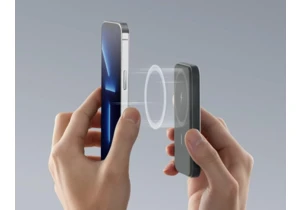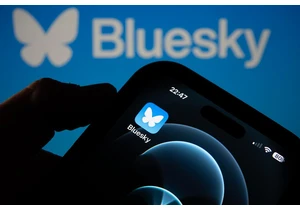Ever since Samsung introduced the Galaxy Ring, I’ve wanted Google to make a smart ring. I initially imagined it would be a Pixel Ring — something that would fit into the existing wearable portfolio that includes the Pixel Watch and Pixel Buds. But at a recent roundtable with the heads of Google’s Health, Fitbit and Wearables businesses, I was presented a more compelling possibility. When CNN’s Lisa Eadicicco asked the question on everyone’s mind about whether Google would expand its wearable product portfolio with other types of gadgets, the answer surprised me.
After first giving an expected “nothing to share as yet” response, Sandeep Waraich, the senior director of product management for Google Wearables, pointed towards the Fitbit family. “We see there’s a big opportunity with a discrete device that lasts very long [and] has a simple experience that’s very focused on health and fitness.”
Waraich continued by saying “today, Fitbit has a pretty robust portfolio but it has not been refreshed for a while, so that’s where we see opportunity and we have been deeply thinking about bringing the right experiences.” He did not reveal much more upon further pushing, but one thing became clear to me. If Google were to make a smart ring, it would be part of the Fitbit family.
That makes a lot of sense, if you consider the activity trackers that Fitbit is synonymous with. They are fairly basic wristworn devices that do little more than count your steps, track your heart rate and occasionally vibrate to tell you to look at your phone. You could say they’re unsophisticated, but they’re also simple and serve very specific purposes. Plus, they last forever — clocking between days and weeks on a charge.
As someone who loathes wearing any device to bed, I’m frustrated at the lack of options available to me for sleep-tracking. Bed sensors don’t seem to get very accurate data, while bedside radar or motion detectors (like the Nest Hub or Amazon’s retired Halo RIse) have been largely abandoned by their makers. A smart ring, like the Galaxy Ring or Oura, are effective and comfortable solutions.
The thing is, a lot of my digital data is housed in Google services. I’m a Gmail girl, and I pay quite a lot every month for a generous amount of Drive storage. A Google-powered sleep tracker appeals to my data hoarder tendencies.
Throw in the fact that Fitbit has long led the way in accurate and sophisticated sleep and activity tracking, and a Fitbit Ring’s potential grows significantly.
Of course, there’s always the risk that, should Google make a smart ring, it might give up on the product after a few years, rendering my data or device useless. Just look at the Google graveyard. I will say that Waraich and his colleagues seem to see a future where people have multiple devices that serve various, specific purposes. A smartwatch and smart ring could both coexist as useful accessories that feed into a person’s main device, which these days is usually a smartphone. In addition to those gadgets, people likely also own laptops, TVs and tablets — screens of all sizes.
In response to a follow-up question on the topic of a multi-device lifestyle, Google’s general manager of Health and Home Rishi Chandra said “There’s no doubt we need to maximize the devices you already have.” But he added “there’s no doubt in my mind there’s going to be new form factors that will exist.” He cautioned, though, that “it’s too early to have conviction,” stating that currently the team is in the “experimentation phase.”
“We are experimenting,” Chandra said. What comes out of that experimentation and what sticks around ultimately depends on developments in the industry that no one can assuredly predict. I do think, though, that given the company’s expertise in simple, straightforward activity trackers, a Fitbit Ring would not be too much of a stretch. Plus, the fact that the Oura Ring is now in its fourth generation and that it and the Galaxy Ring have proven to be worthwhile devices show that there is a market for this category.
This article originally appeared on Engadget at https://www.engadget.com/wearables/a-fitbit-ring-would-make-so-much-sense-163055386.html?src=rss https://www.engadget.com/wearables/a-fitbit-ring-would-make-so-much-sense-163055386.html?src=rssMelden Sie sich an, um einen Kommentar hinzuzufügen
Andere Beiträge in dieser Gruppe







